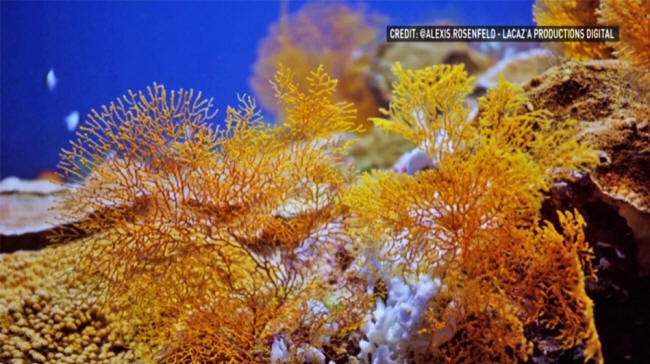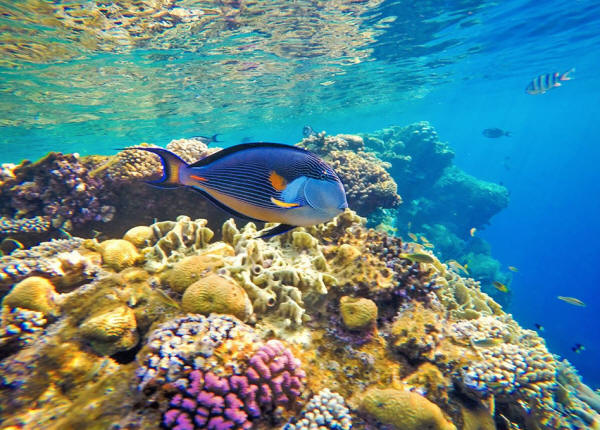|
A Tale of Two Media Perspectives
A Google news search for the term "climate change" today turns on a flood of stories discussing the recent discovery of a previously unknown and evidently pristine coral reef off the coasts of Tahiti.
Most news outlets covering the story, like CBC, France 24, and the New York Post, only mentioned climate change in passing, noting this coral reef seems untouched by the myriad factors impacting neighboring coral reefs.
CNN, perhaps predictably, tried to,
The CBC story, titled "This huge coral reef has only just been discovered, and it's undamaged by climate change," was typical of most of the news coverage of the newly discovered, diverse, and healthy reef.
CBC writes:
CBC and others said very little about climate change related to the reef because there was little to say, other than to imply warming waters affected other reefs nearby.
Most of the coverage of the reef was hopeful in tone, uniformly covering the fact that the reef was healthy, diverse, proof that reefs can be resilient to climate change, and indicating,
CNN's slant on the discovery, by contrast, took a decidedly alarmist tone.
Rather than touting the coral reef's apparent resilience in the face of the myriad threats to coral health, the least of which, evidence suggests, is modestly warming oceans, CNN immediately presents the discovery as a cautionary tale about the 'dangers' of climate change.
Thankfully, almost everything CNN said about the threats to and the abundance of coral reefs was false.
As explored in previous Climate Realism reports, here, here, and here, for example, corals evolved when the oceans were much warmer than at present and require warm waters to thrive.
As a result, corals have been expanding their range in response to modestly warming ocean waters. Most of the corals that have bleached in recent years have recovered.
Where corals have not recovered, their bleaching and death have been tied to coastal pollution, including from,
Indeed, research reported in Phys.org suggests coral reefs are far from threatened.
According to the Phys.org story, titled "Half a trillion corals - World-first coral count prompts a rethink of extinction risks," the number of corals in the Pacific Ocean alone exceeds half a trillion...
There are likely trillions more globally...
The scientists involved in the research say the sheer number of corals and coral species means the risk of extinction due to climate change is vastly lower than previously claimed.
This research exposes the fact that although the International Union for the Conservation of Nature (IUCN) lists 80 coral species to have an elevated extinction risk, 12 of those species have estimated population sizes of more than one billion colonies.
When the discovery of this unexpected, pristine, massive coral reef in Tahiti's waters was announced, corporate media outlets had a choice,
Most media outlets took the high road, presenting the facts about the reef, its location, extent, and uniqueness, and discussing the marvels that this reef presented and the good news it might be telling about the abundance of corals in as yet uncharted waters.
They limited their speculations about climate change.
CNN, as is its usual practice, took the low road, briefly describing the Tahitian reef's discovery and its wonders, and then making the story about climate change.
Along the way CNN presented,
...about the threat climate change poses to coral reefs worldwide, in an attempt to say this newly discovered pristine coral reef is endangered, even though there is no evidence this is true, from 'human greenhouse gas emissions'.
Shame on CNN...!
|



